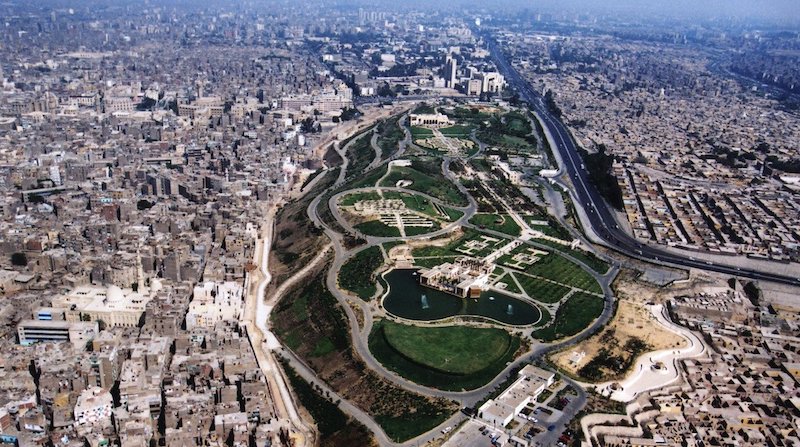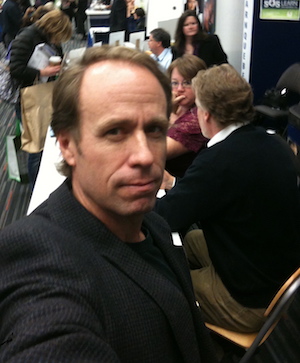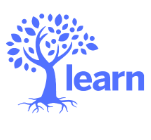Geography

Welcome to the Cycle 1 Secondary Geography page at LEARN. Here you can browse available learning situations, including various sample Cartograf mapping scenarios and other document packages and guides.
For Cycle 1 HISTORY tasks, docs and scenarios: Go to page![]()
Teaching and Learning Tools
Cartograf Mapping Scenarios
Sample activities and mapped document collections involving geo-localization, available on LEARN's Cartograf installation. Look in the map's "Description" for scenario instructions.
Metropolises around the world (EMSB)
Go to page ![]()
Cairo: A Metropolitan Territory
Go to page ![]()
Cairo: Issues in the Metropolis
Go to page ![]()
Around the world Protected territories
Go to page![]()
Quebec City as Heritage site
Go to page ![]()
Montreal/New York Transportation, Economy
Go to page![]()
Simple Map of Mexico Mexico City, Migration
Go to page![]()
Brazilian Amazon Forest Region
Go to page![]()
Territoires agricoles à risque Agricultural territory
Go to page![]()
Learning Situations
Here you will find LES's and other strategies, including those adapted from or in partnership with RECITUS or the school boards.
The Saguenay-St. Lawrence Marine Park: A Protected Territory
LES to help students discover and understand the role played by protected areas on Earth by closely examining an example of a unique Canadian territory: the Saguenay-St. Lawrence Marine Park. Teacher's guide: Download![]() Student Workbook Download
Student Workbook Download![]() Appendices Download
Appendices Download![]() (See also the related Cartograf mapping scenario on Protect territories: Go to site
(See also the related Cartograf mapping scenario on Protect territories: Go to site ![]() )
)
Quenching Our Thirst: Water Management Today
LES for Competency 3 Global Citizenship, where students become cognizant of the current issues around the world water crisis.
Teacher's Guide Download![]() Student Notebook Download
Student Notebook Download![]() Reproducibles Download
Reproducibles Download![]()
Exploitation of forests
Students examine the issue of forest exploitation through the adventures of Mike Forrest, a student who has found a summer job as a tree planter in Abitibi. Students will understand the complexity of the issue of forest exploitation, not only at regional and national levels, but also at a global level. Exploitation of forests is on a separate page Go to page![]()
Mother Nature Enraged: "Does nature really attack the poor?"
Students identify various natural hazards and assess their consequences in an urban environment. Students define the concept of natural hazard management in a context of international solidarity: saving lives and reducing economic disruption. Updated with new sources in 2022. Now available as Google Doc here.
Geography Document Collections & Shorter Activities/Tasks
Geography files, collections, tasks or dossiers
These packages of related resources were translated from various RECITUS dossiers/tasks. Some are in the process of being archived here from our old LEARN website while others are newly translated from their large collections available at recitus.qc.ca and documents.recitus.qc.ca
Virtual Reality - Energy Producing Territory Go to site![]()
What is a geographical sketch? Download![]()
Energy Dependence Google doc version of older resources Go to site ![]()
Cities Subject to Natural Hazards Google doc version Go to site![]()
Metropolises PDFs of original files in this section:
Metropolises overview Download![]() Montréal Download
Montréal Download![]() Cairo Download
Cairo Download![]()
RECITUS updated Dossiers de géographie (In French only, so far)
The RÉCIT de l'univers social have produced several new dossiers of documents and related tasks for Geography which can be found on their main document site: Go to site![]() You can browse some here:
You can browse some here:
- Métropole : Montréal
- Territoire énergétique : Dépendance du Québec au pétrole
- Territoire industriel : l'aluminium au Québec
- Territoire agricole national : Californie
- Le territoire des Cris
- Parc marin Saguenay–Saint-Laurent, un territoire protégé
- Fréquentation et protection du Parc marin Saguenay–Saint-Laurent
LEARN How-Tos for Students
Note these How-Tos are in the student area of the site. There may be other How-Tos you could use in Geography class, but for now here's a sample selection:
Interpret a Picture Go to page ![]()
Make a Geographic Sketch Go to page ![]()
Create a simple map Go to page ![]()
Use Intellectual Operations Go to page ![]()
Graphic Organizer storehouse
A central place where we (try to) store all our graphic organizers as we build them, organized roughly around the Intellectual Operations and Historical Thinking Skills. (In Secondary History section for now: Go to page![]()
Professional Learning in Social Sciences
UDL in a Social Sciences Context:
Resources and Challenges in a Digital Age

Thinking about how you might adjust your History content and practices for all learning styles and experiences? LEARN online resources, in line with the secondary and new adult education history courses, can help you engage your students, explore, use and also interpret events for a variety of situations. Recently I shared a presentation on new templates structured around UDL with some teachers at the ACE Online summit. A video presentation on the First part on Engage is available at https://youtu.be/p5uS6IxKjfk
Social Sciences Online and in a Digital Age
Follow along as new learning scenario examples are added throughout the year. You will find tips, tricks and tools to help you teach online and in a digital age, using LEARN’s various resources, in response to the QEP program's approaches and according to an inquiry learning model. Visit the Secondary version ![]() Visit the Elementary Version
Visit the Elementary Version ![]() (Note too that in 2020 Paul Rombough also presented these strategies in an information online session available here.)
(Note too that in 2020 Paul Rombough also presented these strategies in an information online session available here.)
LEARN Blog entries for Social Sciences teachers
The LEARN blog is full of fascinating articles, all of which can contribute to your development as a teacher... and they are fun to read! Here are a few especially for us Social Sciences folk:
- Learning in Place: Working towards a local history learning toolkit Go to page

- Native-Land.ca - First Stop on a Journey Through Territory & Time Go to page

- Teachers as Cultural Facilitators in the Social Sciences Go to page

- Beginners No More: Social Sciences Online in a Digital Age Go to page

- Podcasts for Professional Development Go to page

- Feedback Street: Formative Assessment in History. Go to page

- Flipped History: A new approach for a new curriculum. Go to page

- History of Quebec and Canada – Planning for a new curriculum. Go to page

- Rapping Across the Curriculum. Go to page

- A Time and a Place for Elsewhere: The Role of Context... Go to page

- Geolocalize it: The global context of everything. Go to page

- iPadding… upstream! How do you manage it? Go to page

- 3 a.m. blogging, and why social sciences should be social, & public! Go to page

- Cartograf: Taking time for power mapping. Go to page

- Imagining a more meaningful and contributive future for education. Go to page

- History, reality…. and parties. Go to page

- Life stories in the classroom, and beyond! Go to page

Media and Podcasts in Social Sciences
After posting the excellent blog post by Matt Russell on Podcasts for Professional Development on the LEARN main blog, we started up a section dedicated to online media for PD for the Social Sciences teacher. Go to page![]()
Learning Communities & Professional Associations
Various associations and groups allow SocSci teachers to communicate and share, and to develop as professional learners. Here is a list of few key groups:
- Secondary 3 History Professional Community
Commununauté Histoire du Québec et du Canada. Go to site
- Quebec Association of Geography Teachers and Global Educators Go to site

- L'Association Québécoise pour la didactique de l'histoire-géographie. Go to site

- Association québécoise pour l’enseignement en univers social. Go to site

Visit and join their Facebook page and group too! Go to site
- Société des professeurs d'histoire du Québec. Go to site

- Le groupe des responsables de l'univers social. Go to site

Our Presentation on Historical Thinking (Matt R and Paul R)
Matt R. (WQSB) and I (Paul R from LEARN) presented on HIstorical Thinking concepts and strategies at LCEEQ a few years back. Here are a few ideas and resources we presented:
- Key links we mentioned:
- Main Historical Thinking Site on Historical Thinking.ca. And to order the book The Big Six
- The Historical Thinking concepts and specifically their guideposts document
- Our Google Slide documents
- Our Powerpoint temporarily available here
- Historical Event cards created with screenshots from Canadian Encyclopedia timelines
- Graphic Organizers:
- (Remarkable and Reveal) Single page and Huge Electronic versions for online collaboration are available below and in main-page Graphic Organizers section for Situate in Time and Space (Long version contains link to event cards)
- Consequences Placemat for Degree of Influence (and similar for Relevance). Available below and in main-page Graphic Organizers section for Cause and Consequence
- Historical Collection and Consequence Cards: Historical Collection #26 on American Revolution consequences. Including consequence cards to print (Note: Many other doc. collections via History of Quebec & Canada and the Communauté)
- A few video suggestions:
- What is Historical Thinking: for Historical Thinking skills, especially Evidence and Perspectives by @teachinghistory https://www.youtube.com/watch?v=mSJLmWnxrPg … Many of our "Intellectual Operations" involved. Good (U.S. History) examples
- The Importance of studying History: Historical Thinking Concepts overview and notion of a Growth Mindset, looking in the future. https://www.youtube.com/watch?v=iehEwDvwTfg
MEQ (Previously MEES) Program Documents - Secondary
Below you will find various Ministry of Education program and evaluation documents for the Secondary Social Sciences domain. (Contact Paul R. if you find broken links!)
Quebec Secondary Programs in Social Sciences
The QEP program documents describe course aims, competencies to develop, and course content.
Cycle 1 History and Citizenship Education Download![]()
Cycle 1 Geography Program Go to site![]() Download
Download![]()
Cycle 2 History of Quebec and Canada Sec. 3 & 4 program Download![]()
Cycle 2 History of the 20th Century Download![]()
Cycle 2 Cultural Geography Download![]()
Cycle 2 Financial Education Program Download![]()
Cycle 2 Contemporary World Go to site![]() (Or view PDFs for Four credits
(Or view PDFs for Four credits![]() Two credits
Two credits![]()
Note that the Ministry (MEES) Programs of Study page, where you will find these "General Education" Secondary School Programs and older programs too, is now online here: Go to site![]()
Progression/Precision of Learning documents
Cycle 1 History & Citizenship Go to site![]()
Cycle 1 Geography Go to site![]()
Cycle 2 Contemporary world Go to site![]() (Or view PDF's for Four credits or Two credits)
(Or view PDF's for Four credits or Two credits)
History of Quebec & Canada. (See instead "knowledge" within the program Download![]() )
)
Evaluation Frameworks
Below are links to the individual evaluation frameworks. You can also visit the main MEES site and browse by subject to review them Go to site![]()
Cycle 1 and 2 - History & Citizenship Education Download![]()
Cycle 2 (New) History of Québec and Canada program Download![]()
(Older) History & Citizenship Education framework Download![]()
Cycle 1 Geography framework Go to site![]() (Or Download
(Or Download![]() )
)
Contemporary World online version Go to site![]() (Or Download
(Or Download![]() )
)
Financial Education Go to site![]() (Or Download
(Or Download![]() )
)
BAMD: MEES approved books site
Bureau d'approbation du matériel didactique
MEES sample "Document files" from training sessions
1608 and 1760 - Document File: Cities in Canada
1840-1896 - Document File: Socio-cultural expression
1896 to 1945 - Document File: Education and technical training
1896-present - Document File: Challenging capitalism
1945-present - Document file: Language issue
1980-present - Document File: Information Era
Origins to present - Document File: Inuit nation
Contacts in Social Sciences
Paul Rombough

My main dossiers at LEARN include:
Social Sciences at all levels
Contact me at
prombough at learnquebec.ca
Some Twitter folks worth following
Paul Rombough LEARN @paulrombo
Matt Russell WQSB @historyrussell
Craig Bullett RECIT @RECIT4ESSB
Dan Hedges SWLSB @dhedgegrove
Joan Zachariou LBPSB @SSLBPSB
Kesi Walters CQSB @KesiWalters
Steve Quirion RÉCITUS @recitus
Maude Labonté RÉCITUS @MaudeLab

 FACEBOOK
FACEBOOK TWITTER
TWITTER
 INSTAGRAM
INSTAGRAM LINKEDIN
LINKEDIN